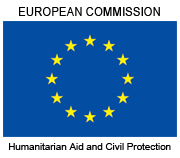Improving Mental Health in Mullaitivu
World Vision Lanka was granted funds from the European Commission Humanitarian Aid department (ECHO) to implement the project “Improved Mental Health in Mullaitivu”. The 12 months project is complementing an ongoing Mental Health and Psychosocial Support intervention in the Northern Province and enables World Vision and its partners (the Ministry of Health and the College of Psychiatrists) to put a stronger focus of activities on Mullaitivu district.
Mullaitivu was the district where the last and decisive battle of the decades-long civil war took place, and it was the last area to be opened for resettlement by refugees.
The aim of this project is to increase access to government mental health services for the communities of the conflict affected areas and to increase the capacity of these individuals and communities to cope in times of distress. Under this European Commission funded project, 15 Community Support Officers (CSOs) have been trained to perform a vital mental health outreach function through house visits and community events as well as providing referrals for people living with mental illness or those requiring specialised care or treatment.
A key aspect of the role of the CSO is to identify people in the communities who require specialised support from the mental health unit of the district hospital. They also provide a range of services such as monitoring medication, linking people with other service providers through the provision of clinical and psychosocial referrals, raising community awareness of mental health issues common in the Northern Province and provide one-on-one psychosocial support for clients.
To make sure the CSOs can travel between villages in a time-efficient manner, ECHO further made possible that bicycles were purchased and made available to the mental health workers.
As part of the mental health awareness raising a series of workshops and information sessions are planned with health inspectors, midwifes, key community members such as religious leaders and teachers, as well as workshops for local Community Based Organisations. These measures will be supported by Information, Education and Communication materials such as brochures and posters.
This project is funded by the European Commission.For more information on the European Commission Humanitarian Aid and Civil Protection Program (ECHO) please visit their website at http://ec.europa.eu/echo
